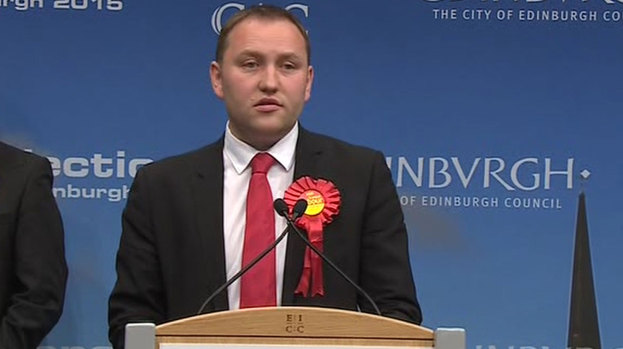JEREMY CORBYN: ‘I’m not going anywhere’
An opinion poll released on Friday indicated 48 percent of British voters supported extending air strikes to hit ISIS in Syria, with 30 percent opposed.
After a tense shadow cabinet meeting on Thursday, Mr Corbyn – a vice-president of the Stop the War pressure group – made clear he would not support any bombing.
He defended his decision to email Labour MPs to make clear his opposition to airstrikes before the shadow cabinet had come to a collective position and suggested his colleagues had briefed the media about their positions in favour of bombing before he made a public declaration against.
The Parliamentary Party – a large proportion of which is believed to be considering supporting air strikes – will then hold what could be a highly fractious meeting this evening.
Len McCluskey, the general secretary of the Unite trade union has fired a warning shot at any MPs who may see this as an opportunity to dislodge Mr Corbyn.
The key question facing Corbyn is whether he will let Labour MPs vote with their consciences or impose a “three-line whip” – a way to try and force the whole party to vote against air strikes, with consequences for those who do not.
Corbyn had previously stated that his party would only support airstrikes if they met preconditions including a unanimous decision from the United Nations and a coherent humanitarian plan, as well as high levels of local support.
Speaking at the Commonwealth Heads of Government Conference in Malta, he said: ‘I’m not responsible for what is happening in the Labour Party.
Corbyn said he would not describe himself as a pacifist but military action should only be used as an absolute last resort.
“I don’t think it will solve the problem that is there”, he said. “I will make up my mind in due course”.
Cameron confirmed Defence Secretary Michael Fallon and Foreign Secretary Philip Hammond would tell opposition MPs about a “comprehensive” strategy for hitting IS and ending the Syrian civil war and with it the rule of president Bashar al-Assad.
As many as several thousand people protested in London on Saturday against the possibility of British airstrikes in Syria, as the country’s lawmakers remained divided over the possibility of expanding military intervention in the region.
Jeremy Corbyn is set to reveal later whether he will order his party to oppose airstrikes against Islamic State targets in Syria.
If he allows a free vote, perhaps half his shadow cabinet and around 60 Labour MPs may vote for air strikes. When asked whether he would resign over the issue, he told Marr that “I’m not going anywhere”.
The latter risks a furious backlash from some members of his shadow cabinet, says BBC political correspondent Ben Wright, and could derail the government’s hopes of holding a vote within days.
Parliament is expected to vote on the issue next week after Prime Minister David Cameron pushed MPs to back the move in the wake of this month’s Paris attacks.
“I think it is incredibly important for us not to turn this into a question and debate about the inner workings and mechanisms of a shadow cabinet, which is 30 people sitting round a table in the bubble of Westminster”.








